Imagine having to carry a fragile egg all around campus, knowing that one wrong move could lead to a cracked disaster. This is not just a fun school project, it’s meant to help students understand childhood psychological development. The assignment is called “The Egg Baby Project” and students will learn about the maturation of a child from a parent’s perspective.
The students in Mr. Frank’s Psychology class have been tasked with the responsibility of taking care of an egg, which represents a child.
“Because psychology is all about understanding how and why we develop in the ways that we do, it allows students to apply their understanding of physical, cognitive and emotional maturation from a different perspective (one of the parents),” Mr. Frank explains.
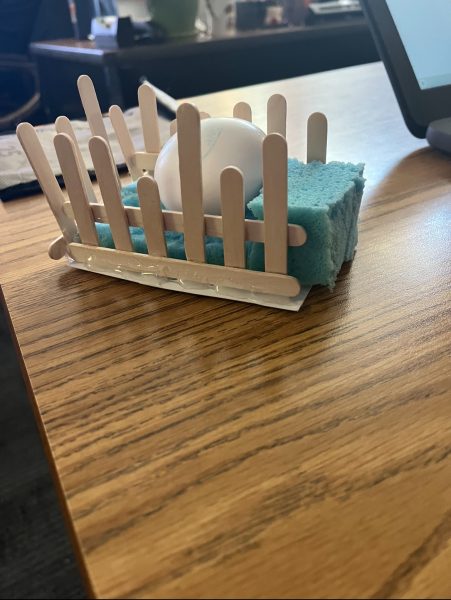
The students were required to construct an egg carrier, like a crib or car seat, that will keep the eggs safe from all the dangers of walking through the halls and up and down the stairs. Since no one would stuff a real baby in a backpack, students are not allowed to put their eggs in their backpacks.
Sophomore Maylee Maynor is one of the students in Mr. Frank’s class that has taken on this project. She likes how the project is increasing their knowledge of psychology.
“I feel like it’s a very good interactive assignment,” Maynor says. “It allows us to understand what we have been going through in class, which is developmental psychology.”
Although it can be fun, this project also has a lot of dangers.
“Going through a school day with lots of students who could accidentally crack my egg at any time is very stressful,” Maynor comments.
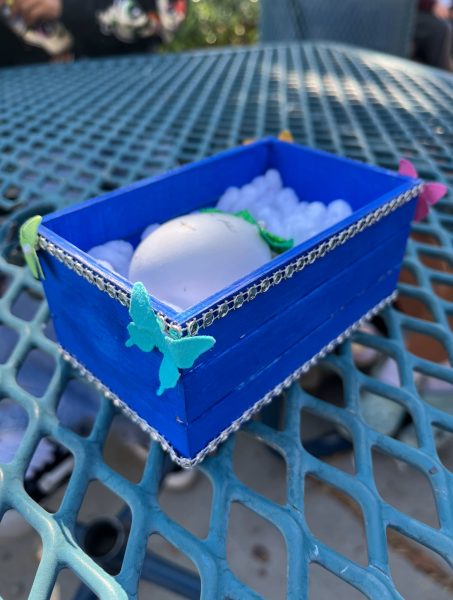
If students break or damage their eggs, the students are required to get another egg and receive a point deduction. Mr. Frank chose eggs because they are the best representations of kids and adolescents.
“Eggs are a great representation of a child because they are fragile and teenagers are quite clumsy, but eggs are cheap and easily replaced,” Mr. Frank said.
After each day of carrying their eggs around all day at school, the students document their experiences throughout their day in journals.
“In this project we have daily journals where we talk about our whole day with our child (egg),” Maynor explains. “The journals record the stage of life that they’re currently going through. We also discuss the developmental psychology of our eggs and how it relates back to our class.”
The whole project lasts 8 days, which is a week and a half. As for the students, Mr. Frank knows that they have fun with this egg project.
“I genuinely think that my students enjoy this assignment,” Mr. Frank said. “Some students will take pictures with their egg babies out in public, create fun back stories for their egg babies and develop an emotional connection with their eggs over the brief time period. It is an excellent way for students to contextualize the concepts covered in class in a creative way.”


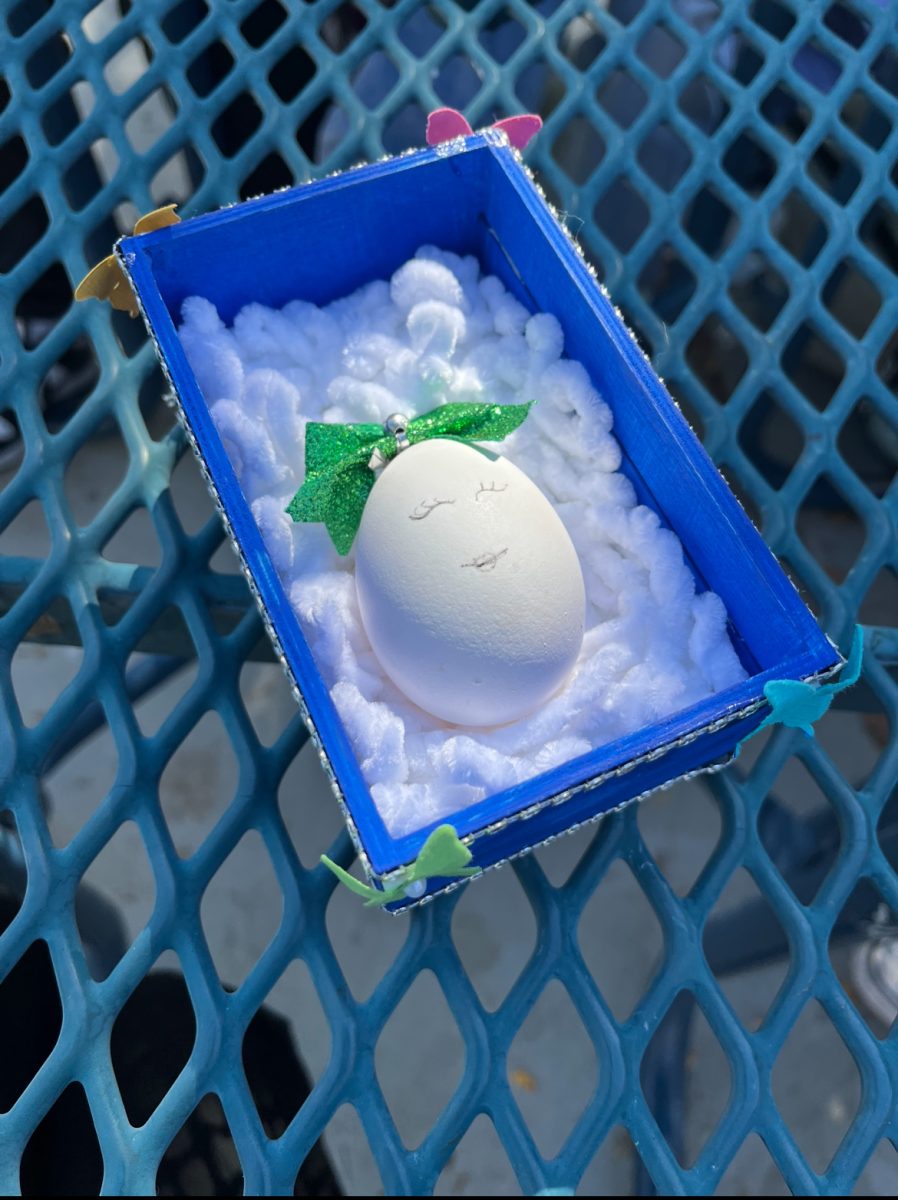
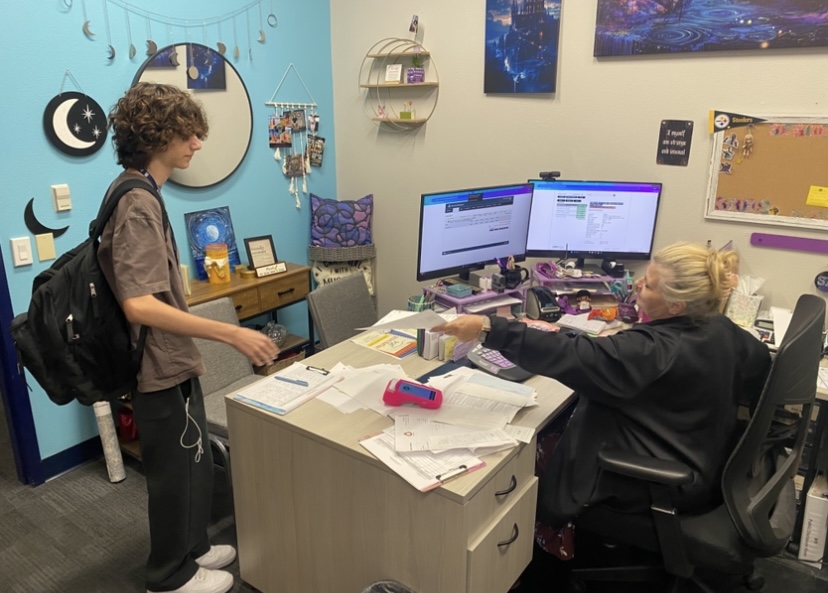
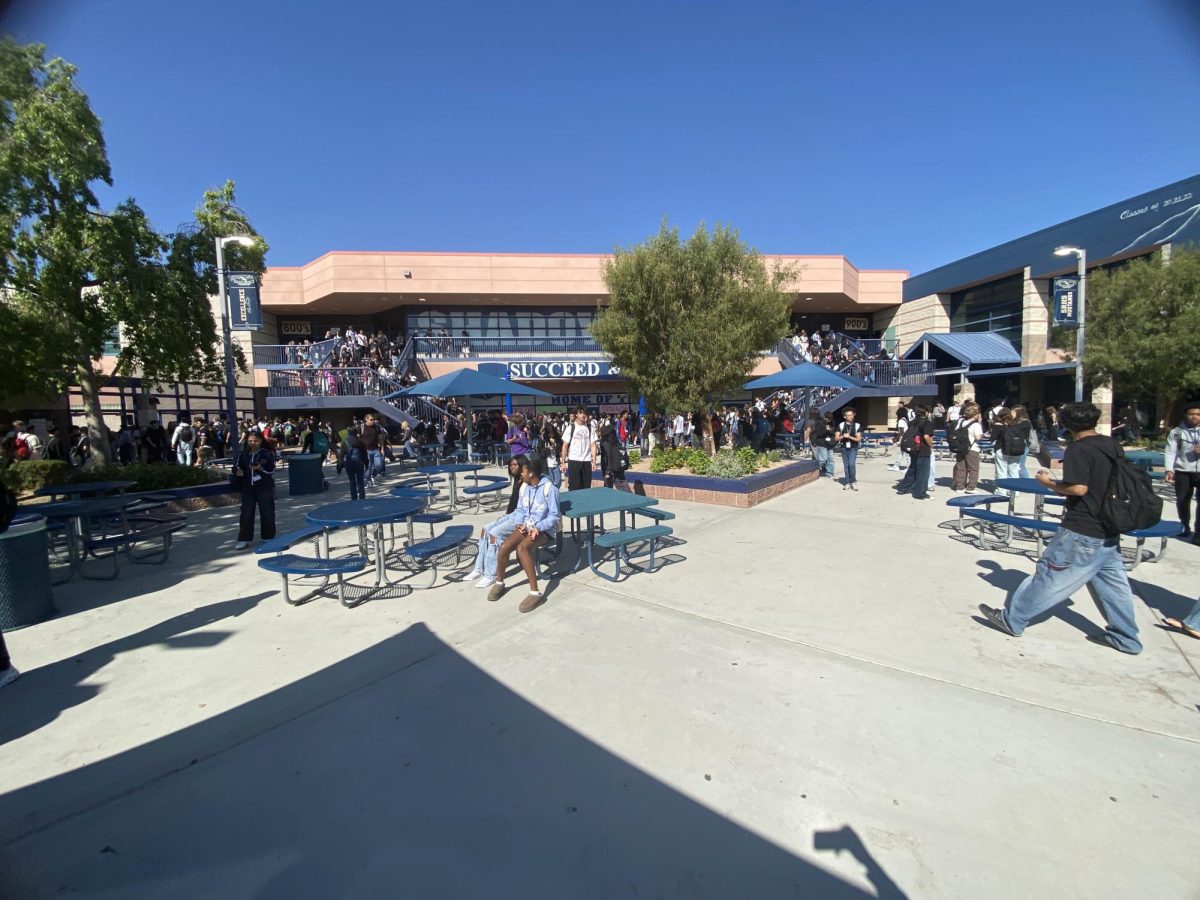
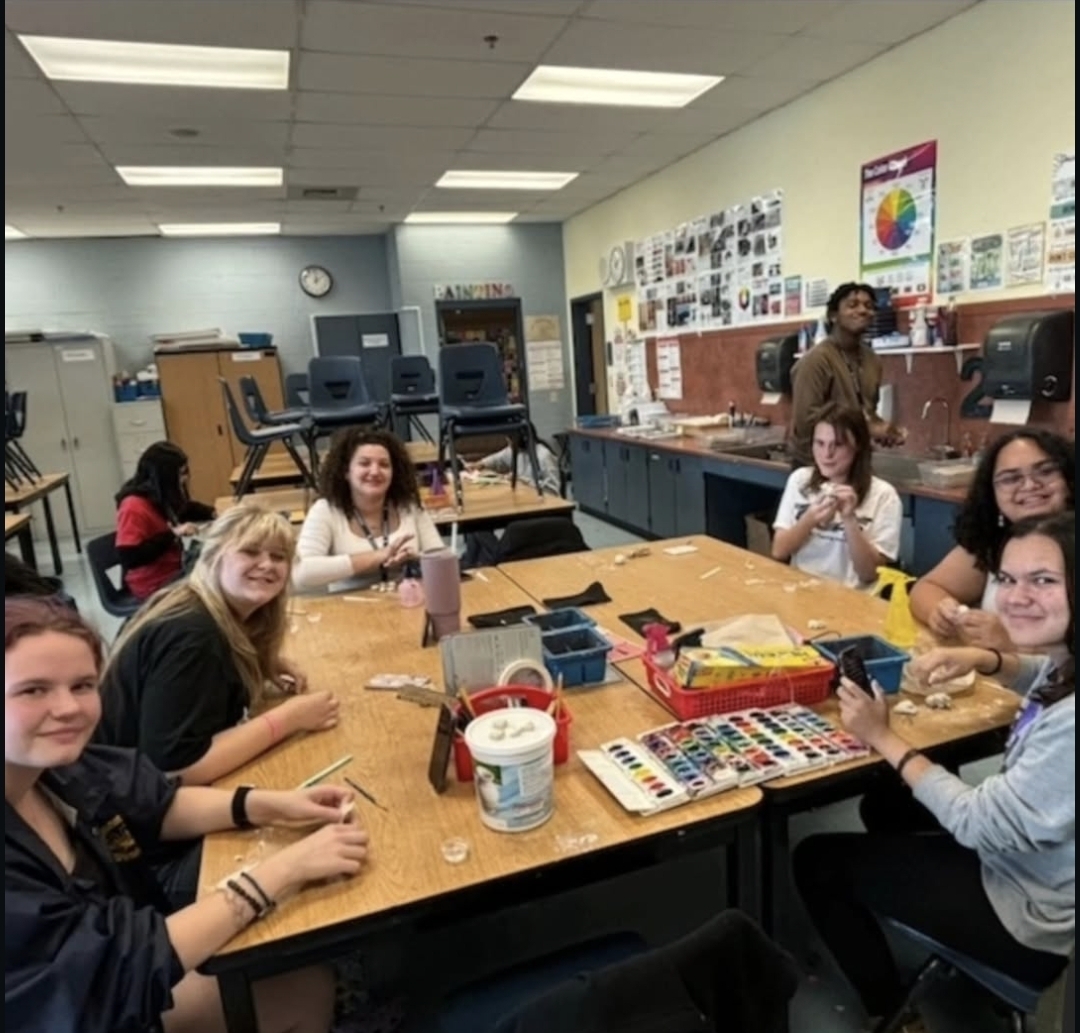




Missy Shipp • Nov 3, 2024 at 11:14 am
Thus is one of my favorite projects that the kids enjoy!